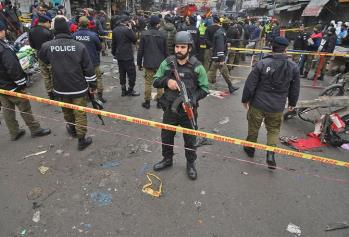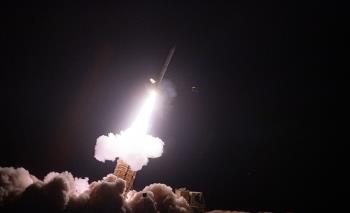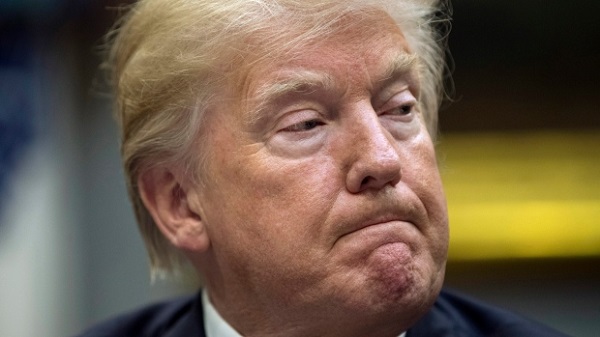Alwaght- The US Department of Treasury added several Iranian banks, institutions, and industrial companies on its long blacklist on October 16. The move, displaying a preposterous antipathy to Tehran, follows months-long discussions of the Trump administration with other countries to build a global alliance against Iran, which delivered the reverse and only yielded isolation to Washington in the case.
The new wave of pressures against Iran comes as Washington sustained regular defeats in its confrontation with the Iran-led Axis of Resistance in a series of regional cases. While Washington observes its global and influence declining, Tehran and its regional allies are hitting new levels of regional sway. Now, Trump’s White House is taking erratic and hysteric actions to reverse its losses against Iran in the region. It spares no efforts to make gains against the Islamic Republic.
Brian Hook’s Impossible Mission
As the US imposed new sanctions on Iran, White House stepped up talks with other countries to cut the Iranian oil from the global markets. Brian Hook, the head of Iran Action Group, a body launched at the Department of State, in a conference in Luxemburg in mid-October said that “zero” Iran oil sales is an aim to Trump administration.
Trump envoy traveled to a set of the European countries and India, all buyers of Iranian oil, to persuade them to stop energy contracts with Tehran. The trip comes while over the past few months, the major Iranian oil purchasers like China and India insisted that they will continue receiving oil shipments from Iran. Times of India newspaper has reported that India will pay the Iranian oil in the rupee, its national currency, from November as a trick to bypass the US sanctions on dollar transactions with Iran. According to a finalized contract between Tehran and New Delhi, India, as the second largest Iran oil buyer, will receive 9 million oil barrels once the new round of anti-Iranian sanctions begin.
The main purchasers are worried that decrease in Iran oil supply or a full cut will negatively impact their economies. It is impossible for them to fast find an alternative to the Iranian oil and unstable oil market will curb their economic growth.
On the other side, France, Germany, Britain, China, and Russia— all signatories of Iran nuclear deal— met on the sidelines of United Nations General Assembly on September and discussed a “special mechanism” to deter the US financial ban on the transactions with Iran and keep the nuclear deal alive. The mechanism eyes transaction channels separate from those controlled by Washington to avoid being detected and thus sanctioned by the Americans. Called formally “Special Purpose Vehicle”, the mechanism is, in fact, a barter system. The SVP will intend to serve as a "clearing house" of sorts for transactions with Iran in euros, in order to avoid involving central and commercial banks, who fear U.S. penalties on their operations. The idea comes while US leaders are still divided over whether to allow Iran continue presence in SWIFT (Society for Worldwide Interbank Financial Telecommunication). The system is based in Belgium used by the world banks for transactions.
The evidence shows that so far Hook’s talks to the European leaders went nowhere. Many analysts agree that Trump gave the Iran Action Group’s chief an impossible mission.
US blind hostility to Iran, breaching international laws
The hostile sanctions against Iran drew a strong reaction from Tehran. Foreign Ministry’s Spokesman Bahram Qasemi said: “New US sanctions are invalid and a blatant violation of the international and legal mechanisms and stem from the American government’s blind enmity to the Iranian people.” Qasemi called the new restrictions “part of pressure and psychological warfare.”
The spokesman continued: “Contrary to its hypocritical claims of support to the Iranian people, the US blocks their advantages from foreign financial and trade relations. Washington unfairly, oppressively, and against the international laws and principles of human rights endangers their interests. It will certainly not succeed.”
Qasemi also referred to the October 3 provisional ruling by the International Court of Justice that called parts of the US sanctions imposed on Iran in May illegal and called for their lifting, warning that the Americans should refrain from any actions that will escalate the tensions.
“The recent US pathway, which includes failure to adhere to the international laws and principles, not only threatens the Iranian nation’s interests but also destabilize the world security. Unlike the US, Tehran and the international community try in good faith to allow Iran to enjoy the nuclear deal-guaranteed interests after US illegal withdrawal,” the spokesman continued.
Moscow opposed to anti-Tehran ban
In addition to Tehran’s condemnation of the fresh ban, the Russian Foreign Ministry found the sanctions “unacceptable.”
"Regardless of what reasons, under what pretexts and against which countries the United States imposes its unilateral sanctions, we firmly oppose it,” Sergei Ryabkov, Russia’s deputy foreign minister, told the Russian state news agency Sputnik.
“The unacceptability of unilateral extraterritorial sanctions as a foreign policy tool has been and remains the core of our position. We see that Washington respects no limits in the pursuit of exerting pressure on countries it dislikes, including Iran," he added.
The strong opposition emanates from Moscow while since his arrival at the White House Trump sought closeness to the Russian President Vladimir Putin to sow division between the allies. The divisive efforts have focused on Iran’s presence in the region in general and Syria in particular. The fresh support to Tehran by Moscow appears to signal Trump’s policy defeat.
Last shot
Experts say that Washington has used up all of its play cards to press Iran economically, adding that the expected November 4 embargo has, in fact, already gone into effect. Iranian President Hassan Rouhani in late September said there is no such thing as November 4 sanctions. There is a notion that the ban was the last shot at Washington’s disposal for an “illusionary” aim to force Iran into economic collapse.



























